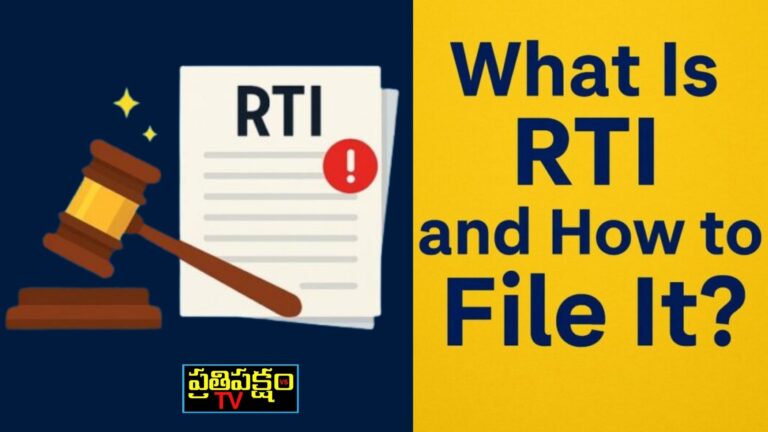Right to Information : Transparency is the lifeline of any democracy. In India, that transparency got a new meaning with the Right to Information / RTI Act, 2005. For the first time, ordinary citizens were empowered to question the government, from local ration card delays to multi-crore scams.
History of RTI in India
The RTI Act did not come overnight. In the 1990s, activists and civil society movements demanded accountability. The slogan was simple: “Information belongs to the people, not the government.” After years of struggle, Parliament passed the RTI Act in 2005, marking a new era for Indian democracy.
What Can You Ask Under RTI ?
Government spending, tenders, and contracts
Progress of development works
File status on ration, pensions, scholarships
Police, revenue, and municipality records
Data on health, education, and environment
Exemptions:
National security, defense, and intelligence agencies’ sensitive information. However, if it involves violation of human rights, even such agencies may be compelled to respond.
Why RTI Matters
Exposing Corruption: From road scams to welfare fund misuse, RTI has revealed many scandals.
Power to People: Even the poorest citizen can demand answers.
Strengthening Democracy: Citizens become partners in governance.
Accountability: Officials cannot hide behind bureaucracy.
How to File an RTI?
Identify the PIO (Public Information Officer) – Each department has one.
Write the Application – Include your name, address, and clear questions.
Pay the Fee – ₹10 via IPO/DD (BPL category exempted).
Response Time – Within 30 days; urgent cases within 48 hours.
Online RTI Filing
– Use rtionline.gov.in for central government departments.
-Many states also operate their own RTI portals.
Successful RTI Cases
A farmer in Uttar Pradesh filed RTI on pension delays. His case exposed inefficiency, leading to pensions being released for 200 farmers.
An NGO in Mumbai used RTI to expose irregularities in municipal contracts, unearthing a major scam.
Villagers in Bihar filed RTIs about school funds. Records showed misappropriation, forcing corrective action.
Challenges in RTI
Delayed responses by officials.
Vague or incomplete answers.
Misuse for personal or political motives.
RTI activists sometimes face harassment or threats.
The RTI Act is not just a law — it is the oxygen of democracy. When used responsibly, it empowers citizens, curbs corruption, and ensures accountability. RTI is not just a right; it is a shield that keeps Indian democracy alive.
READ IN TELUGU:
https://prathipakshamtv.com/rti-telangana-police-tekumatla-sathish/

